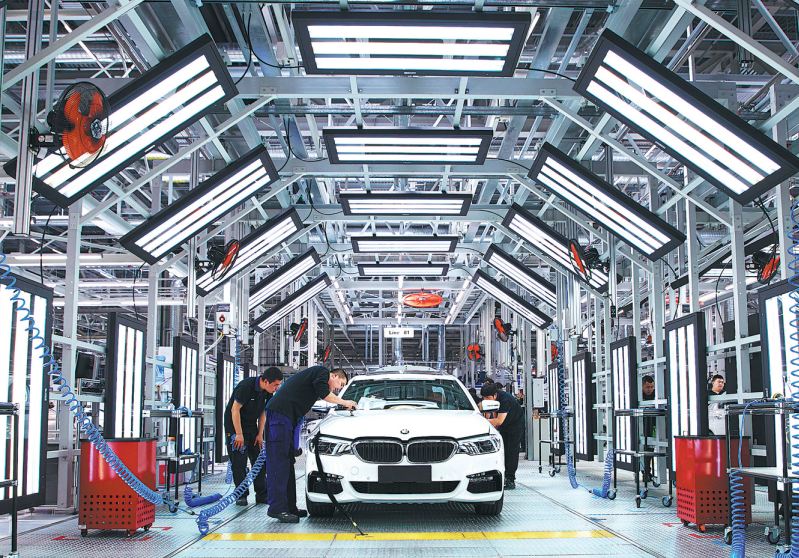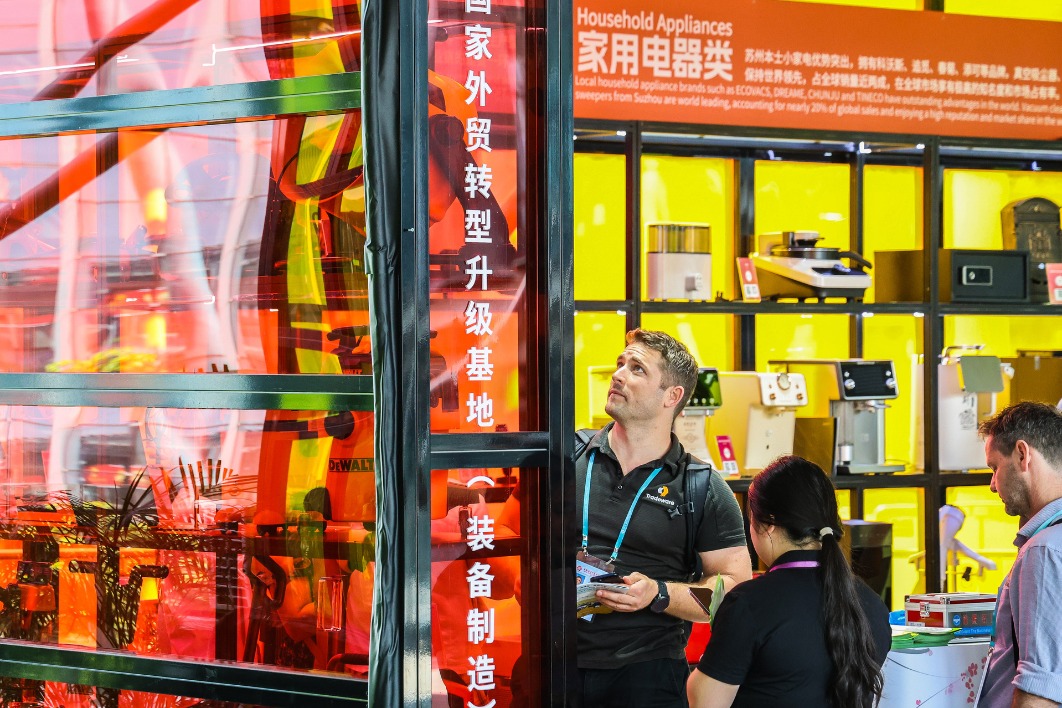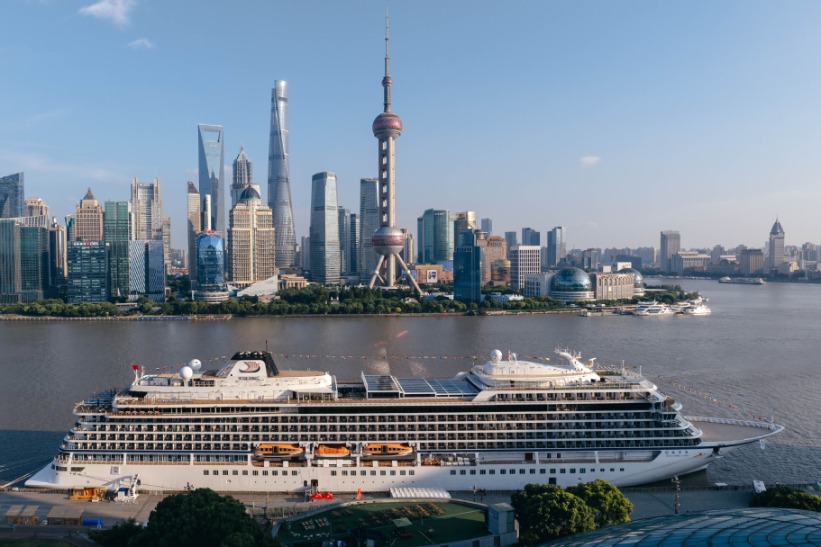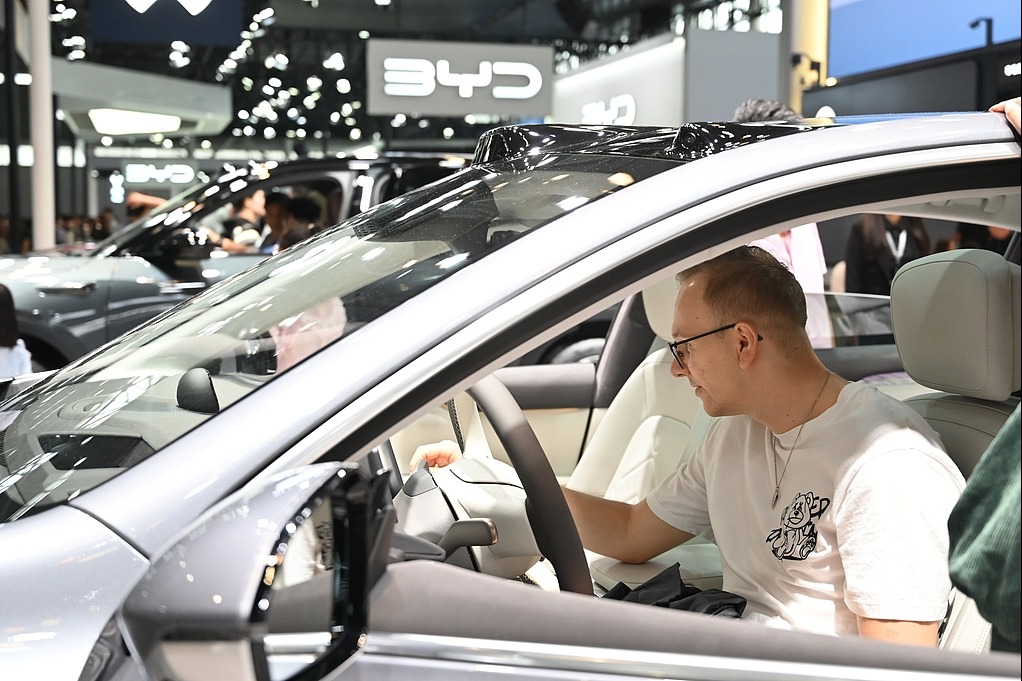Liaoning pursues revitalization


Northeastern province vows to deepen reforms, improve business environment to attract more investors
Liaoning province is recovering from its leaner years as it attracts more and more foreign capital and know-how, especially in advanced technology, services, logistics and the financial sector, maintaining robust growth as it competes with other coastal provinces.
Northeast China had been a key engine for the country's heavy industry before the reform and opening-up in the late 1970s, but in the following years, Liaoning struggled. With its neighbors Jilin and Heilongjiang provinces, it became known as the rust belt as a result of deindustrialization, similarly to the northeastern regions of the United States.
Just as beleaguered northeastern US areas had to innovate and move into new industries to revive their fortunes, Liaoning - about the size of Iowa - is enhancing its modern manufacturing and services industries, and is pushing to upgrade consumption, spurred by central government incentives and policies.
BMW AG is expanding its battery cell plant with its local partner in Shenyang, capital of Liaoning. As one of the three battery cell factories BMW operates worldwide, the 670 million yuan ($97.9 million) project is the second phase of a high-voltage battery plant that will produce parts for the iX3 small crossover vehicle in 2020.
The past 15 years have seen the emergence and success of BMW Brilliance Automotive Co Ltd, a joint venture between Germany's BMW Group and Brilliance China Automotive Holdings Ltd established in Liaoning, the industrial cradle of China.
Other international companies, attracted by Liaoning's growing consumption power and logistically convenient geography, have operated production, service, and research and development facilities in the province. Among them are The Coca-Cola Co, thyssenkrupp AG, Siemens AG, Cargill Inc, BASF SE, Draexlmaier Group, ZF Friedrichshafen AG and Wuerth Group.
Opening-up
International economic and trade collaboration in Northeast Asia is being promoted through the China (Liaoning) Pilot Free Trade Zone, which was set up in 2016.
In fact, Liaoning has become an integral part of the national strategy to build an open and new economic system, while improving its business environment is a top priority, said Chen Qiufa, Liaoning's Party secretary.
"To reach this goal, a more market-oriented mechanism and structural reform have been created and promoted. They will advance innovation and mass entrepreneurship, and help international companies to expand their market presence in Liaoning," Chen said.
The 2018 China Top 500 Private Enterprises Summit was held in Shenyang from Aug 29 to 31, creating a platform for both global and domestic companies to take part in regional economic development.
"We will continue to deepen institutional reform and optimize resources to create a competitive business environment for foreign direct investment," said Tang Yijun, Liaoning's governor.
In early May, the province promised to ease market access for foreign investors and has already completely opened up the province's general manufacturing sector to global companies. Market access to areas such as telecommunication, medical services, education, elderly care and new energy vehicles will also be expanded, the government said.
Foreign direct investment of $3.21 billion flowed into Liaoning in the first half of this year, up 14.1 percent year-on-year, and the province's foreign trade hit $52.25 billion, 6 percent higher than in the same period last year, according to the Liaoning Provincial Commerce Department.
The province aims to attract $10 billion of foreign investment and $95 billion of investment from domestic investors in 2020.
Earlier this year, it released measures to support foreign investors setting up research and development centers in the province. The local government will grant subsidies ranging from 500,000 yuan to 2 million yuan to approved R&D centers between 2018 and 2022.
Wang Xintong, deputy director of the Department of Northeast Revitalization under the National Development and Reform Commission, said as the next step, Liaoning needs to ensure that the significant ongoing investment in technologies - including the internet, robotics and virtual reality - can be leveraged to the benefit of its industries. To do that, he said, the province will need to link up industries with scientists, engineers and entrepreneurs, and to attract top talent closer to its factories.
Zhao Ji, president of Northeastern University in Shenyang, said the Liaoning free trade zone will raise regional opening-up to a new level and will promote further regional reform in Northeast Asia.
The zone's three areas include Shenyang, Dalian and Yingkou. Shenyang focuses on equipment manufacturing, automotives and spare parts. Dalian focuses on port logistics and financial businesses. Yingkou's main task is to develop logistics and cross-border e-commerce.
"Through innovation in investment, trade, finance, customs operation, manufacturing, shipping and related services, the market-oriented reform strategy in the Liaoning free trade zone will enrich the development of the Belt and Road Initiative and reach more export destinations," Zhao said.





































